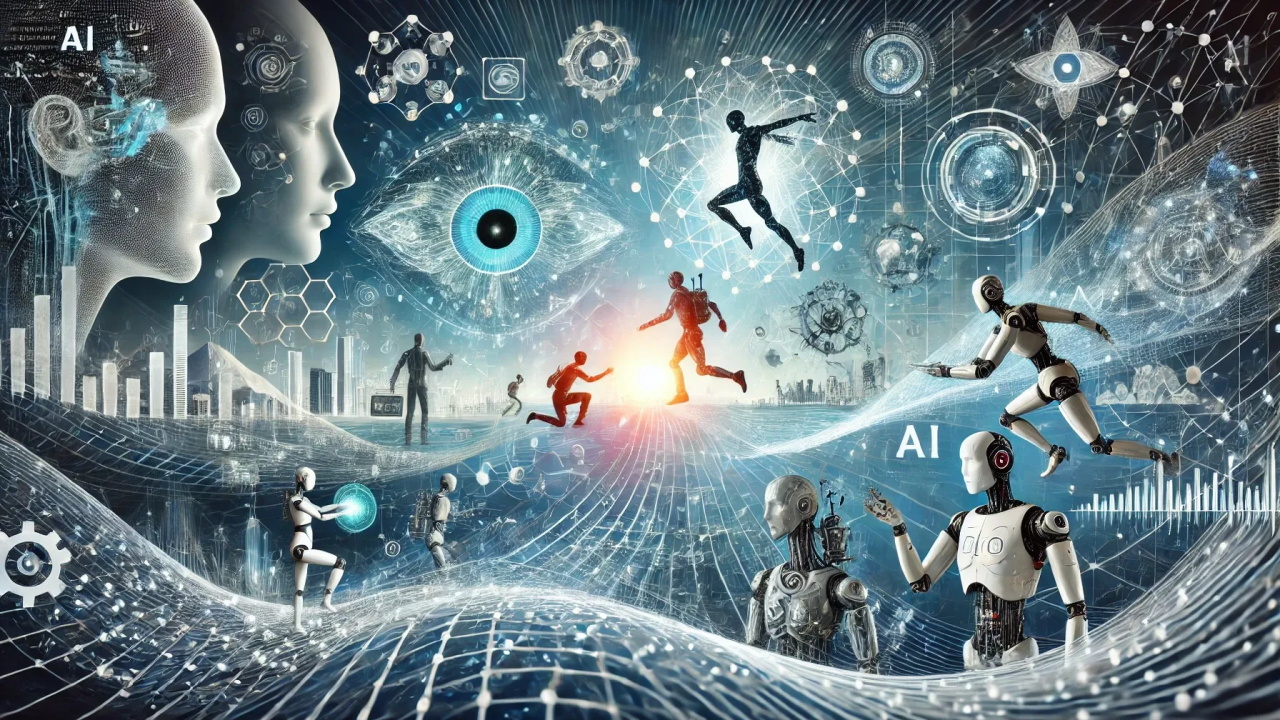
2025: The Rise of Autonomous AI Agents
Stephen Redmond
AI Visionary | Head of Data Analytics and AI at BearingPoint Ireland. Delivering real business value to our clients by harnessing the transformative power of data and AI.
As we start to say our long goodbye to 2024 and think about what might be next in 2025, I think that I can safely say that the landscape of artificial intelligence (AI) is poised for yet another transformative leap.
Earlier this year I wrote about 2024 being the “year of the Copilots”, and 2024 was certainly marked by widespread adoption of AI Copilots, with Microsoft in the vanguard, with other technology leading companies not far behind. We will still be talking about Copilots in 2025, but Copilots further enabled by a suite of AI Agents to do their (and your) bidding. 2025 is looking set to be the year of agentic AI!
These autonomous agents are not just tools but proactive entities capable of performing complex tasks without human intervention. Let’s have a look at the rise of agentic AI, implications of these AI agents, and some of the ground-breaking technologies which are leading the way.
The Evolution from Copilots to Agents
AI Assistants, like Microsoft’s 365 Copilot and SalesForce’s Einstein Copilot, have started to become integral to our workflows, assisting with tasks ranging from drafting emails to generating code. However, these systems still require a human-in-the-loop, in the form of user prompts, to function. Agentic AI takes autonomy to the next level by being able to independently plan, execute, and adapt to achieve user-defined goals, making them far more powerful and versatile. These AI Agents can make decisions and take actions based on real-time data and evolving contexts. This capability has the capacity to transform how we work by enabling more efficient and intelligent operations.
Some of the key technologies driving Agentic AI
This is very much a non-exhaustive list of some of the agentic technologies that have been high on the radar over just the last few weeks.
There are many more agentic technologies, and even as I write there will be more announced. It is a fast-moving landscape right now.
Orchestration of Agents
Having intelligent AI Agents available is useful. But having a way of intelligently managing how they interact with data, processes, and other agents is going to really accelerate this area.
领英推荐
The graphic below from Gartner portrays different components of the business orchestration model to demonstrate the concept of how the future of automation will be autonomous. The future of automation is going to rely on intelligent orchestration of agents using BOAT (Business Orchestration and Automation Technologies)
I can see some of the newer, more agile orchestration tools, such as Camunda, taking a lead here - although heavyweights such as ServiceNow are also well advanced.
Implications for Business
The rise of agentic AI has profound implications for business. For enterprises, these agents can automate complex workflows, enhance decision-making, and improve operational efficiency. In healthcare, finance, and other regulated industries, agentic AI can help ensure compliance and transparency by providing auditable decision-making processes.
Security and Ethical Considerations
With great power comes great responsibility! The autonomous nature of agentic AI introduces new security risks and ethical dilemmas. Ensuring these systems are secure and their actions are transparent is crucial to prevent misuse and build trust. With the emerging legislative landscape, including the EU’s AI Act, businesses will need to be even more sure that they have effective AI governance in place.
Conclusion
As we go through 2025, the rise of agentic AI promises to redefine our interaction with technology at an even higher pace than the last two years of Generative AI. These intelligent agents will not only enhance productivity but also open new avenues for innovation and new opportunities for revenue streams. The next step will be the deployment of intelligent orchestration solutions, which will really accelerate business automation.
The journey from AI Copilots to autonomous agents marks a significant milestone in the evolution of artificial intelligence, heralding a future where machines are not just assistants but proactive partners in our daily lives.
Experienced. NET Developer
2 天前Sounds like the title of the next terminator movie...
The evolution of AI from basic automation to fully autonomous agents marks a transformative shift in technology. As we head into 2025, the potential for these agents to optimize productivity and enable new forms of innovation is limitless. Exciting times indeed!
CEO @Cimba.AI (Building the "AI that works!")
3 周The rise of autonomous AI agents is an exciting leap forward!